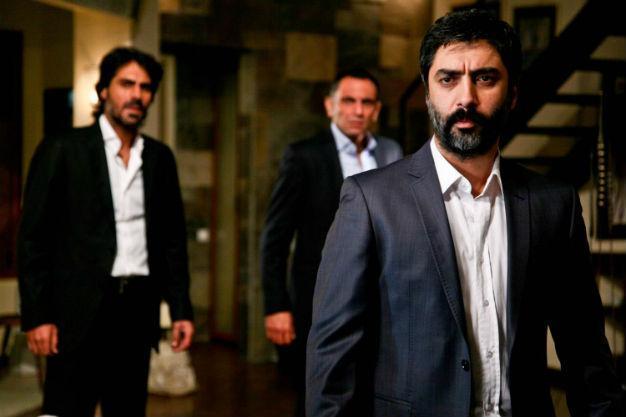Turkish hero ‘impacts the Middle East’
AMMAN – Anadolu Agency

Palestinian writer İbrahim El-Amiri, who has written a thesis on the impact of Turkish TV dramas on the Middle East, believes the Middle East has found its own hero in the state-hired hand in a Turkish TV drama.
After studying the English language and literature at Jordan’s Mute University, El-Amiri, studied information and communication technologies at Yarmouk University. He wrote later his thesis on “Heroes in Turkish Dramas” at Middle East University.
As a contributor to academic publications, El-Amiri has also published stories and articles in magazines and newspaper, along with a story book.
Speaking about his thesis, El-Amiri said Turkish dramas that have been broadcast recently in many Middle Eastern countries gained great popularity. “Turkish dramas have created a sector. As viewers do not want to watch the dramas with subtitles, all dramas have Arabic dubbing,” he added.
When researching his thesis, the writer said he had chance to observe the Arab world and found his own reasoning for the shows’ extreme popularity in the region.
“The reason why Turkish dramas are so popular is that they relate to Eastern culture, particularly in religious matters. The concept of religion is seriously seen in these shows, which causes them to be watched more in the Arab world.”
El-Amiri said “The Valley of the Wolves” was an especially big hit. “The hero of this drama, Polat Alemdar, is one of the most important heroes of the Arab world. He is seen as a hero who always fights against cruelty and the Zionists. The film ‘The Valley of the Wolves: Iraq’ had a great impact on Arab countries and is watched all the time.”
‘Lack of heroes in the Middle East’
El-Amiri, whose thesis focused on the issue of heroism in these shows, claimed that previously the Middle East lacked its own hero.
“People in the Middle East were looking for a hero who would solve the problems that were impossible to solve. Polat Alemdar represented the people of the geography of the same religion. Fed up with Hollywood-style heroes, viewers stopped watching the superficial heroes of Western cinema after seeing Polat Alemdar,” he added.
The writer added that Polat Alemdar always cared about “Muslim problems” and the Palestinian issue. In addition, he visited his father in small mosque, said “Bismillah” and had a marriage by imam; therefore, Middle Eastern viewers felt like he was one of them, according to El-Amiri.
“Before ‘The Valley of the Wolves,’ the characters in other Turkish TV dramas that aired in the Middle East were seen like Westerners and strangers to the geography. After Polat Alemdar, this perception disappeared,” he said.
After the appearance of Polat Alemdar on the TV scene, Egypt and Syria tried to make similar films with similar heroes. But, according to El-Amiri, “[they] failed to create a hero like Polat Alemdar. For example, they fought the mafia like in ‘The Valley of Wolves,’ had gun battles but failed to give the same feeling; failed to create a hero. Their works were superficial in terms of a love story or war scenes.”
He said that Turkey had “met Arab people” thanks to TV dramas and impacted even social life in the region.
“Special heroes have filled a big gap and turned eyes to Turkey. They [the heroes] strengthened ties. In Jordan, people name their children Polat Alemdar. Young people use it as a nickname. All wise and heroic people are called Polat Alemdar,” he explained.
The writer said critics of the show also existed. “Some ideological writers wrote that the Turkish state wants to dominate the Arab world,” he added.
Despite their wide popularity, Turkish love dramas did not have the same impact on the geography as the heroic Polat, in el-Amiri’s eyes. “They were watched and forgotten. But Polat Alemdar continues to affect people as a hero they long for,” he said.
 Palestinian writer İbrahim El-Amiri, who has written a thesis on the impact of Turkish TV dramas on the Middle East, believes the Middle East has found its own hero in the state-hired hand in a Turkish TV drama.
Palestinian writer İbrahim El-Amiri, who has written a thesis on the impact of Turkish TV dramas on the Middle East, believes the Middle East has found its own hero in the state-hired hand in a Turkish TV drama.